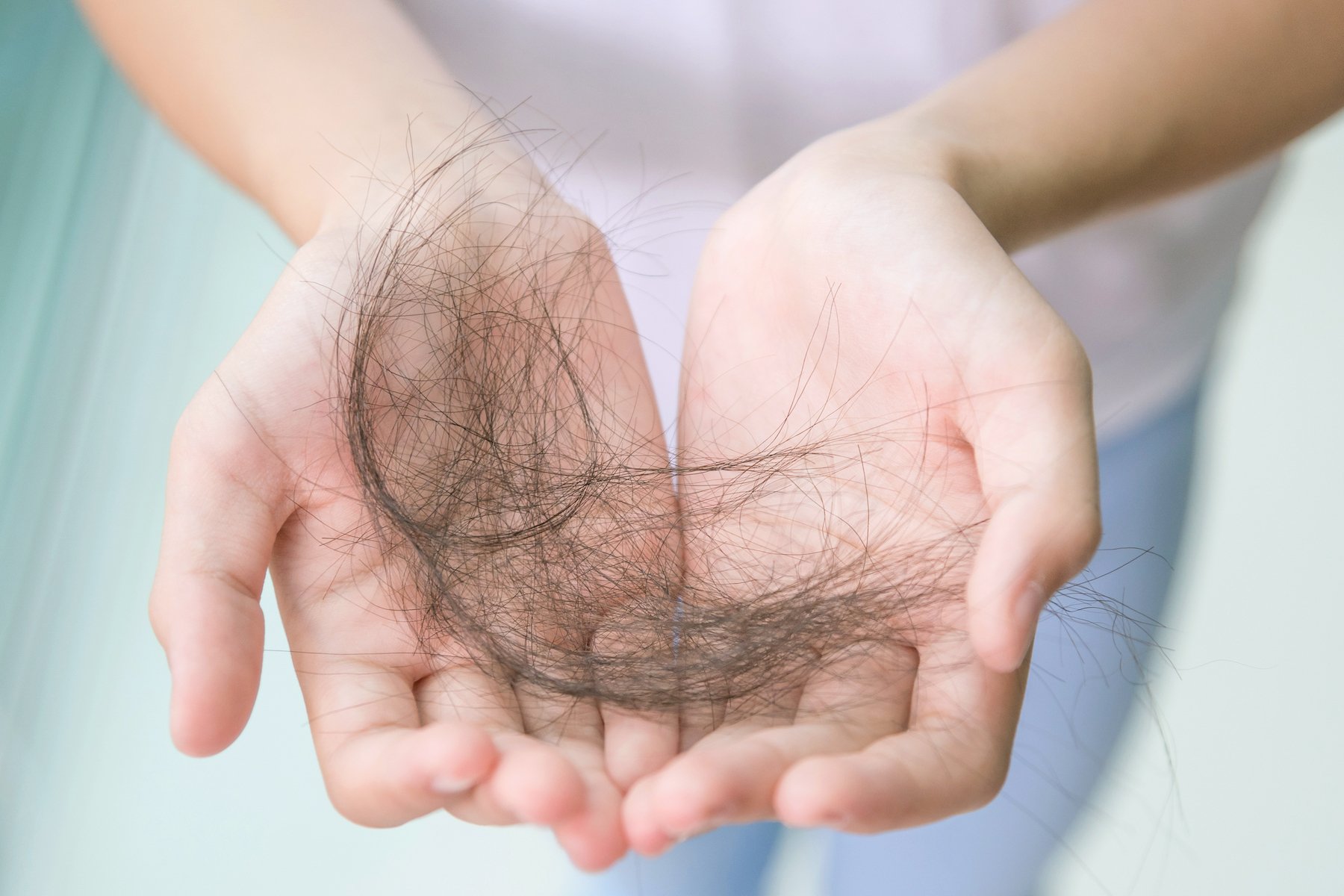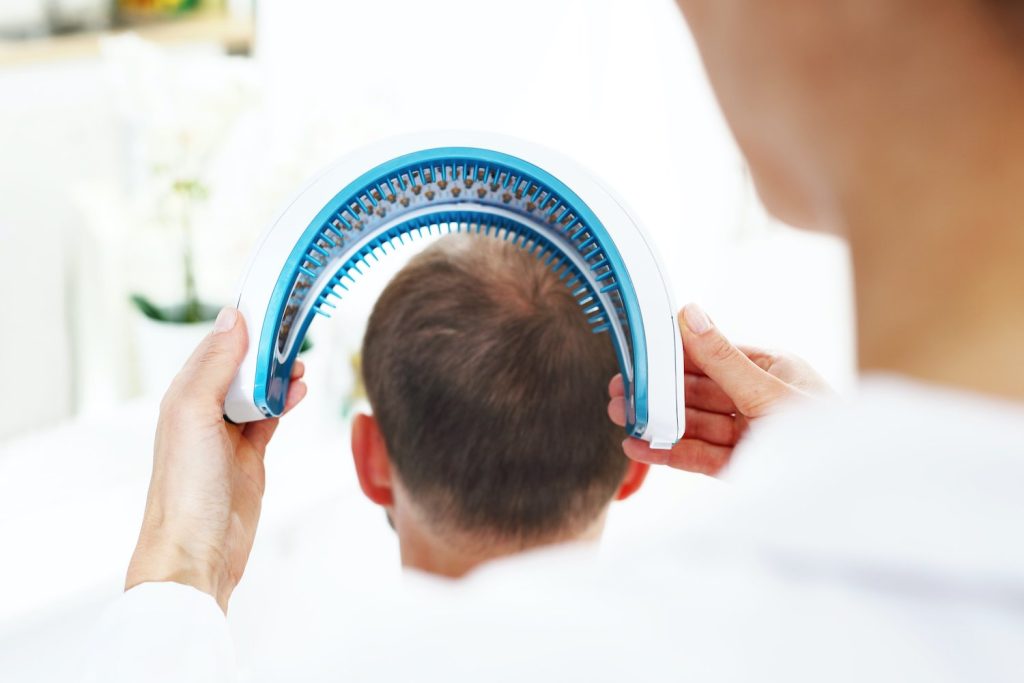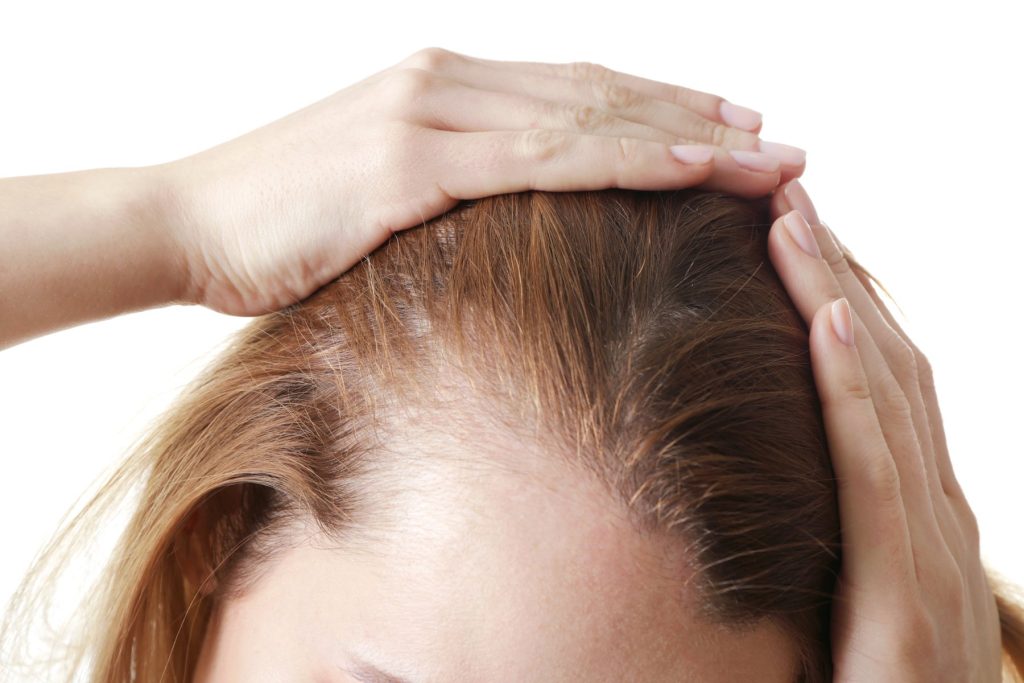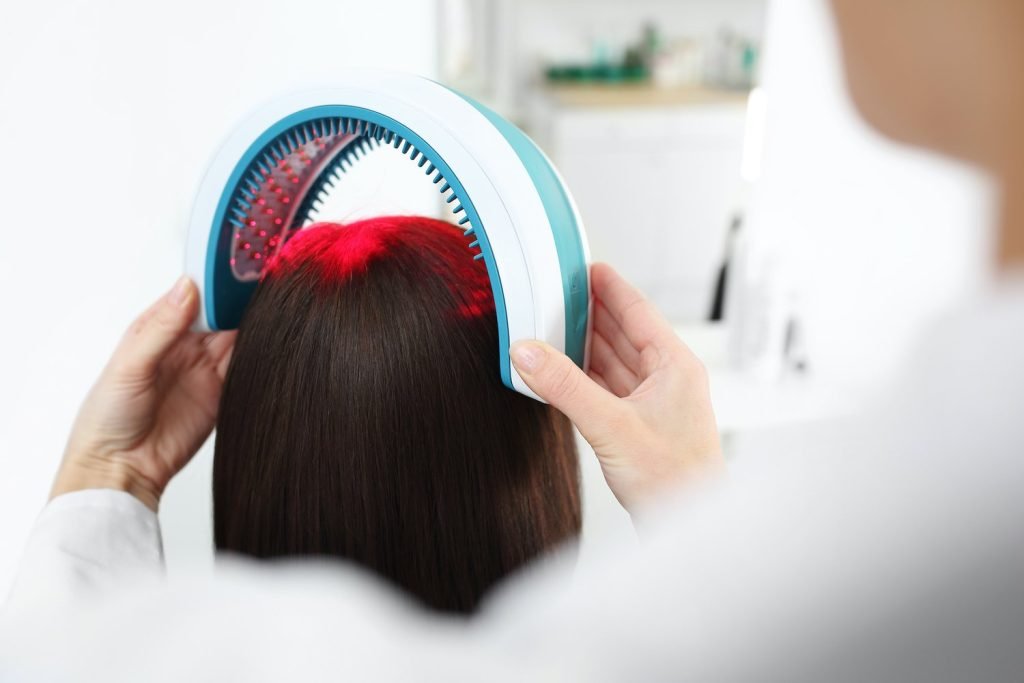- Hairline Clinic - Hair Loss Treatment in Akron and Cleveland Ohio - Schedule FREE Consultation
- 330.633.5225
- CONTACT US
You Can Prevent Hair Loss by Reducing the Stress in Your Life

Stressors such as the pandemic (Covid-19), surgery, and other trauma can lead to hair loss. The key is to manage stress as best you can, come what may.
Stress can cause hair loss in several ways – including how Covid-19 fevers might result in sudden, diffuse hair fall about six weeks after onset of the disease.
The facts are that fever of any kind from any illness can lead to hair falling out. According to Johns Hopkins All Children’s Hospital website, “Sometimes teens lose their hair … having a serious illness or high fever can temporarily cause shedding of large amounts of hair.”
For this sort of hair loss condition, hair loss treatments may not be necessary. Hair will grow back as one moves further from the stressful event. If hair continues to shed or does not recover, speaking with a physician about the available hair loss solutions is advisable.
The site also says that several types of traumatic events – childbirth, surgery, psychological trauma, chemotherapy of course, or serious illness – are also capable of leading to hair loss, in men and women. With illnesses such as the coronavirus, an extended period of fevers is the culprit, and given the nature of this particular infectious disease, not something easily in control of the patient.
But what are the ways one can control stress? And how does stress work physiologically?
It helps to know a few things about the biological components of hair. Hair growth can be broken down into mostly three phases, the anagen (growth), catagen (a brief, 2-3 week phase) and telogen (dormancy or resting). All hair begins in anagen and lasts 2-7 years. It then transitions through the short catagen phase, then on into the telogen phase, which is where it stays for up to 120 days. In the teleogen phase the existing hair shaft is in a resting period, a time when a new shaft emerges from the root to replace it.
A pronounced fever or other traumas speed up this process in a phenomenon known as telogen effluvium.
This condition, telogen effluvium, can also be stimulated by psychological stress. The fact that rapid hair loss accompanies such things as divorce, job loss, a medical diagnosis, or other major, stressful events essentially creates a nasty feedback loop where the patient cannot help but to become more stressed and, often, hopeless.
Fortunately, telogen effluvium is not permanent. With time, emotional counseling, taking up physical exercise or meditation (yoga covers several bases) and healthy life habits of proper diet, sleep, and the removal of environmental toxins (e.g., banning smoking from the household and moving away from areas of heavy vehicular traffic), the condition can be overcome. Hair will return, albeit slowly as the follicles return to the anagen phase.
We provide individualized hair loss treatments and solutions for men and women at our hair loss treatment clinics in Cleveland and Akron Ohio.
If you are a man or woman suffering from stress-related hair loss conditions, we provide industry-leading, individualized hair loss treatments and hair loss solutions to men and women in Cleveland and Akron, OH. Schedule a FREE confidential consultation and evaluation at our Akron Hair Loss Treatment Clinic or our Cleveland Hair Loss Treatment Clinic by calling 330.633.5225 today!
Hair Loss Treatments
Men's Hair Loss Solutions
Women's Hair Loss Solutions
Men's Hair Loss Solutions
Ready for change? Call our hair loss experts at (330) 633-5225 to schedule a FREE appointment.
HairLine Clinic is an industry leader providing individualized hair loss treatments to men and women experiencing hair loss in Akron and Cleveland, Ohio.










